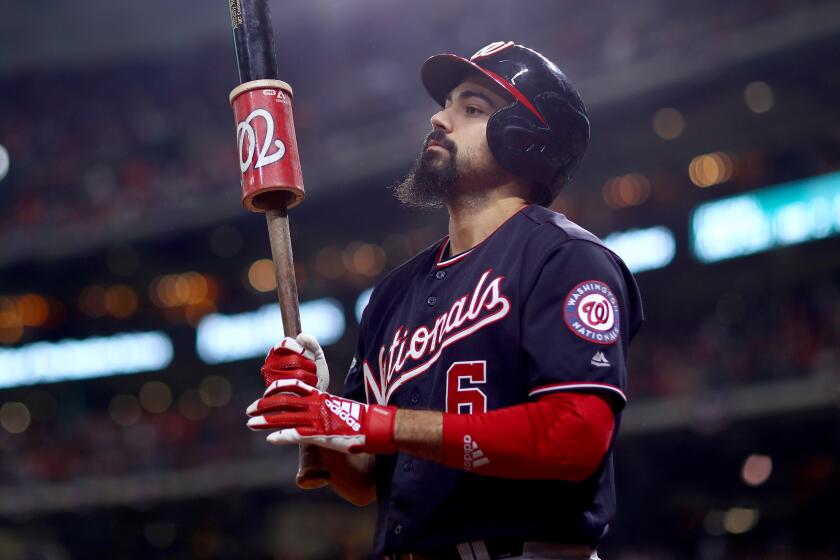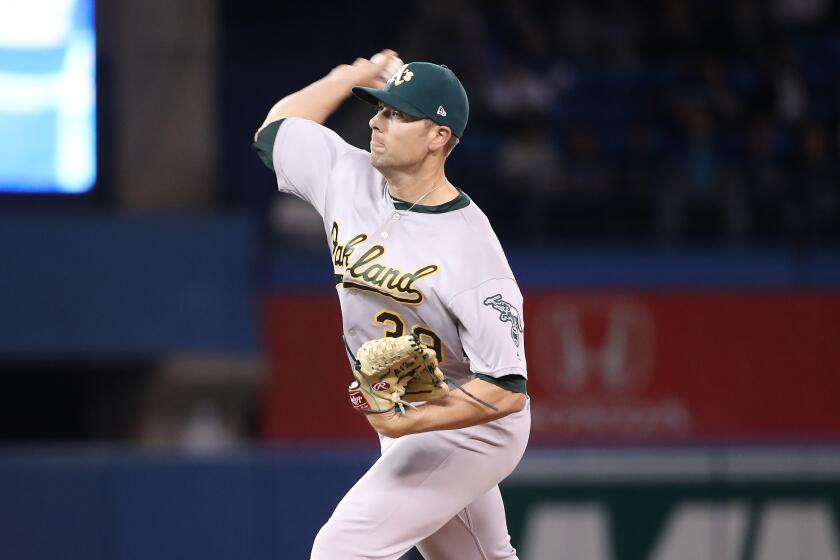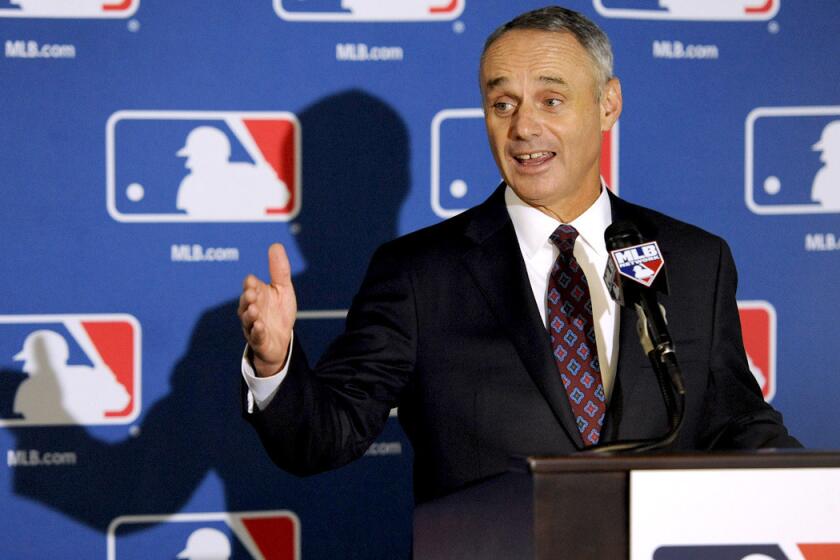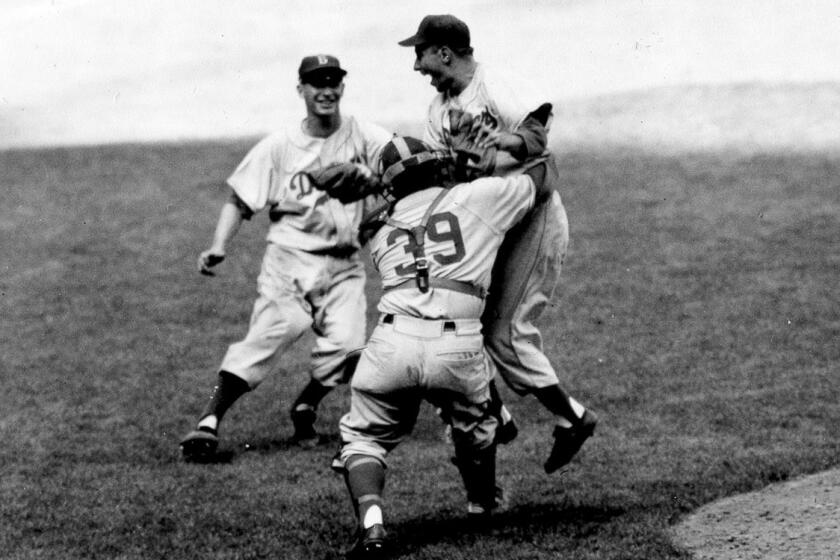Column: Blame Dodgers ownership for blinking on Gerrit Cole and getting outbid by the Yankees
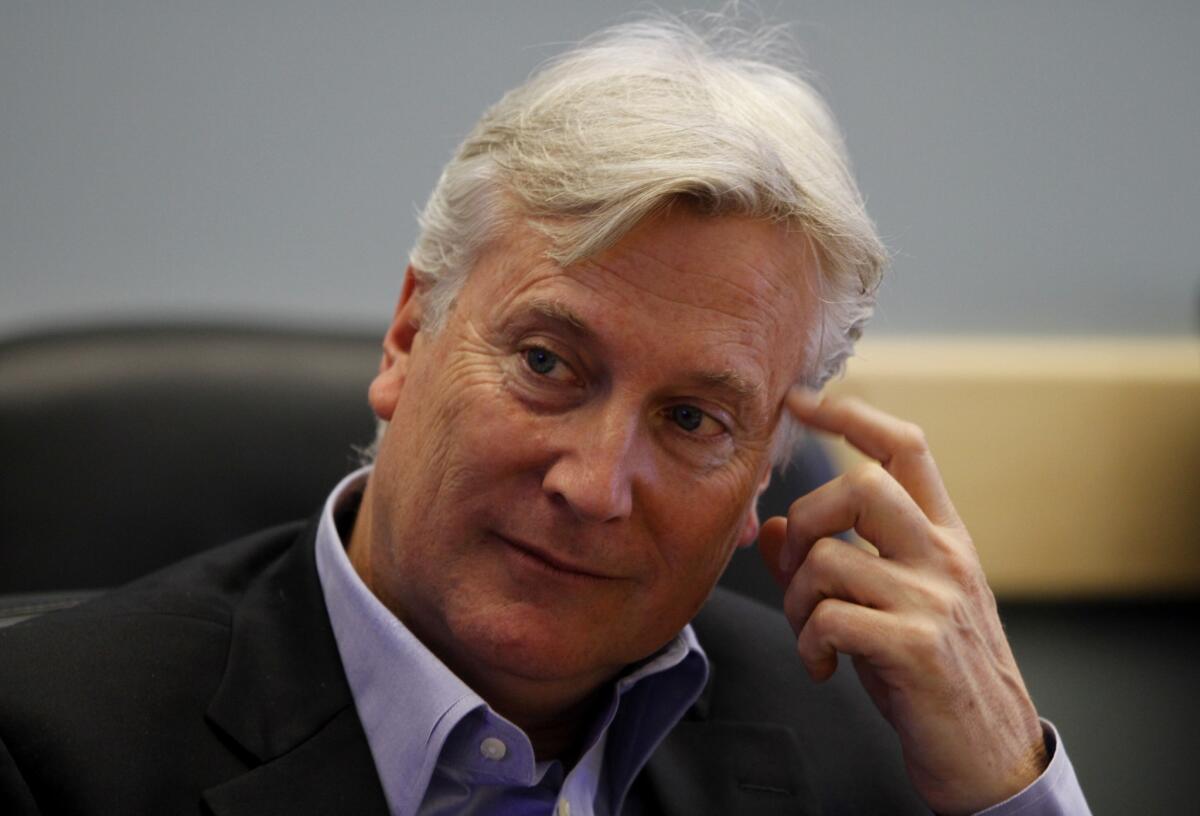
- Share via
SAN DIEGO — With postseason failure practically an annual tradition at this point, the Dodgers have become educated on the downside of not acquiring the best available players.
They still didn’t do what was necessary this week to sign flamethrower Gerrit Cole, who instead went to the New York Yankees on a nine-year, $324-million contract.
With financial restraints preventing them from reaching the postseason in any of their last five seasons, the Angels have learned about the dangers of entering long-term agreements with star players.
They nonetheless reached an agreement Wednesday night with third baseman Anthony Rendon on the most lucrative free-agent contract in franchise history, a seven-year deal worth $245 million.
This wasn’t a surprise.
The Angels lost out on Gerrit Cole and Stephen Strasburg, so they went a different route and signed the top position player on the market — Anthony Rendon.
The actions of the Dodgers and Angels at baseball’s winter meetings were reflections of their respective owners.
On one side were the Dodgers, their aversion to risk inherited from Mark Walter, the investment company executive who is their controlling partner. On the other were the Angels, their gambling spirit a trademark of the impulsive Arte Moreno.
What’s important to know is that though baseball operations departments can advocate for big-tickets investments, the decision of whether to pursue such deals, and how, is almost always made by the team owner.
In the case of the Dodgers, they have a history of refusing to meet the asking price of top players, resulting in them signing Brandon McCarthy instead of Max Scherzer and A.J. Pollock in lieu of Bryce Harper.
The Dodgers have compensated for the relative lack of star power with depth, a reflection of how well Friedman’s front office has drafted and unearthed undervalued talents such as Max Muncy and Chris Taylor. The number of capable players on their roster has helped them survive the physically demanding 162-game regular season, which explains how they have won seven consecutive division championships.
But that depth isn’t as valuable in a five- or seven-game postseason series. In smaller sample sizes, the team with more high-end performers has the advantage.
The Dodgers strengthened their bullpen, signing closer Blake Treinen to a one-year, $10 million deal. Treinen was exceptional in 2018 but regressed in 2019.
Their inability to win a World Series forced them to concede this point and prompted a shift in approach. They targeted Cole, whom they envisioned pairing with ace-in-the-making Walker Buehler at the top of their rotation. With Clayton Kershaw as their No. 3 starter, they very well could have started next season as the favorites to win the World Series.
But the Dodgers didn’t have the experience necessary to win a bidding war against a team like the Yankees. Underestimating how Stephen Strasburg’s new seven-year, $245-million deal with the Washington Nationals reestablished the market for starting pitchers, the Dodgers offered Cole an eight-year, $300-million contract that included salary deferrals, Jorge Castillo of The Times reported. The relatively conservative proposal allowed the Yankees to leapfrog them with a nine-year, $324-million deal without deferred payments.
Guggenheim Baseball Management, the same deep-pocketed ownership group responsible for the broadcasting deal that made the Dodgers disappear from television screens around Los Angeles, might have cost the team the chance of winning their first World Series in 32 years. The Dodgers have since shifted their focus to the trade market, where there is no pitcher close to Cole’s level.
Under Moreno, the Angels have often been bolder than the Dodgers — sometimes to their everlasting regret.
While the extension Moreno awarded to the likes of Mike Trout and Jered Weaver were celebrated, some of his other deals have handicapped the franchise.
Five months after Angels pitcher Tyler Skaggs died with two opioids in his bloodstream, MLB and its players’ union have agreed on a new drug policy.
Most infamous is Albert Pujols’ 10-year, $240-million deal, which runs through the 2021 season. Josh Hamilton was signed for $125 million over five years, C.J. Wilson for $77.5 million over five years and Gary Matthews Jr. $50 million over five years.
Desperate to take advantage of Trout’s prime and two-way player Shohei Ohtani’s return to the mound, the Angels entered this offseason with renewed ambitions and newfound financial flexibility. They recruited Joe Maddon to be their manager. Their next major move came Wednesday, when they beat the Texas Rangers for the signature of the 29-year-old Rendon.
By investing as much as they did in one player, the Angels might not be able to afford to fill the gaping holes elsewhere on their roster. Their rotation remains in shambles. Their bullpen is unreliable.
The way they are constructed now, they will have to count on Trout, Ohtani, Pujols, Justin Upton and top prospect Jo Adell to outscore their opponents.
Can an offseason similar to so many before produce a different result?
The Angels hope so, as do the Dodgers. It could be their only path to October glory. By now, their behaviors are part of their franchise cultures.
The Dodgers’ inability to land elite starter Gerrit Cole is on the owners, starting with Mark Walter, the controlling partner of Guggenheim Baseball Management.
More to Read
Are you a true-blue fan?
Get our Dodgers Dugout newsletter for insights, news and much more.
You may occasionally receive promotional content from the Los Angeles Times.

